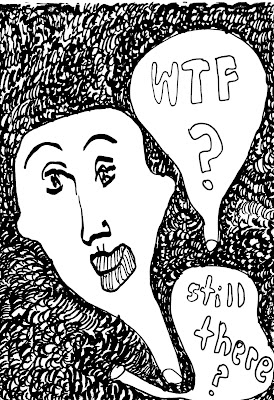Last week I finished Alison Bechdel’s comic
book Fun Home, which I thought was a
fantastic rendering of the inner workings of family dynamics and the ways in
which individual sexualities affect such systems. The story more closely
follows Alison’s relationship with her father and the manners with which they each
separately accepted or rejected their homosexuality as well as found an outlet
to explore this side of themselves. The narrative bounces back and forth in
time, whereby we get a sense of the characters, especially of Alison, as a
child but also as an adult throughout the non-linear telling.
Throughout the story, Bechdel compares her
father with writers such as Fitzgerald and Wilde and tries to draw links
between his life and theirs in order to make sense of his non-traditional
behaviours, such as decorating the house to the extent of an obsession with the
ornamental. I can definitely relate to trying to see myself in other characters
in novels or films for example, in order to normalize my own behaviours in my mind
or even just to feel some sort of alliance with other humans. In fact, I think
I’ve done this so much that I’ve, in some ways, coordinated my life so that it
looks more like the life of some fictional persona, which has often felt more
comfortable than pursuing something entirely unknown. In Fun Home, Bechdel tries to unpack her father’s suicide in
conjunction with the events in the lives of these writers, as she projects that
her father must have been aware of them and would have chosen the dates for his
actions accordingly.
What I particularly loved and really, respected, about this book was its transparency and its honesty. I can imagine the challenges in writing something so confessional about the people you wish to continue to love and receive love from. I think books like these are so important because of this risk, because they had to sacrifice comfort and privacy in order to make others feel at home with themselves.













